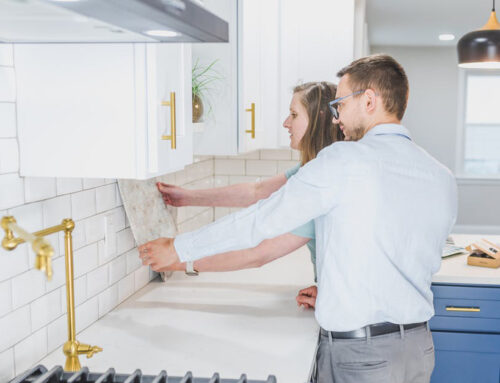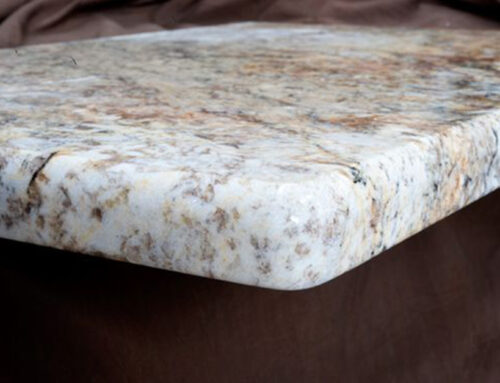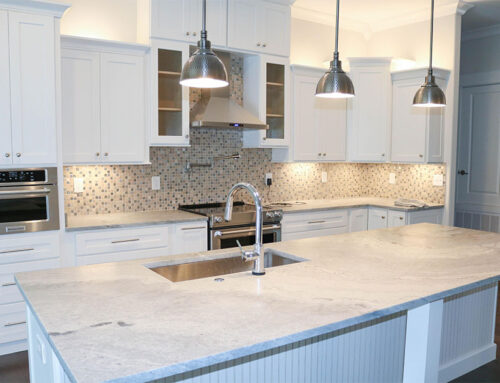Quartz vs. Quartzite: 5 Key Differences
If you are considering installing new countertops, you have probably come across two terms that sound deceptively similar: quartz and quartzite. While both are durable materials popular for kitchen countertop renovations, they differ widely in how they are made, what they look like, and how best to maintain them. Before making a decision, consider these five differences between quartz and quartzite.
Differences Between Quartz and Quartzite
Formation
The biggest difference between quartz and quartzite is in how the two materials are made: the former being man-made while the latter is naturally occurring. Quartz is an engineered stone composed primarily of quartz mineral mixed with polymer resins and colored pigments that bind it together and give it a variety of colors. Quartzite is natural metamorphic rock formed when sandstone undergoes intense heat and pressure. It can then be mined into slabs and cut to fit your countertops.
Durability
Both materials are among the most durable available for countertops—stronger options than granite or marble—though there are slight variations between them when it comes down to specifics. Quartz is a nonporous material, which makes it ultra stain-resistant. It is not able to withstand intense heat, though—like a pan right out of the oven—which can melt the resins in the quartz and leave burn marks. Quartzite is slightly more durable than quartz overall, particularly in its resistance to abrasion, acids, and heat. Its porous surface makes it more likely to stain, however, but this can be avoided with sealing and regular maintenance.
Maintenance
In the quartz vs. quartzite debate, quartz wins for easiest maintenance. Simply put, it requires none. Because of its nonporous surface, quartz does not need to be sealed and holds up well against liquids. Quartzite, on the other hand, needs to be resealed from time to time to keep the material resistant to moisture and stains. For routine spills and cleaning, both quartz and quartzite can be wiped down with soap and water.
Appearance
Another prominent difference between quartz and quartzite is their appearance. Because quartz is manufactured, it’s easier to design with and customize. Quartz offers consistency in its patterns and comes in a nearly endless variety of colors. Naturally-occurring quartzite offers multiple options in terms of design and color. The patterns will vary with the natural grains and swirls in the stone. In addition, the surface of quartzite has visible fissures and pits (these are filled and sealed with resin). For those seeking a natural, organic look to their countertops, this can be an advantage. When considering whether to go with quartz or quartzite, keep in mind that countertop seams will be less noticeable with a manufactured product (quartz) than with a natural stone (quartzite).
Installation/Fabrication
Quartz is usually cut to size from standard slabs. This makes it slightly easier to install in complicated spaces. Quartzite slabs are not generally a standard size and are more labor-intensive to cut, as the process requires the use of a diamond blade. Neither material is meant for DIY home renovation, however. A single square foot can weigh up to 25 pounds, which is one of the reasons installation requires a few expert hands.
Cost
The bottom line here is that quartz is less expensive than quartzite. Quartz is a manufactured product that is molded and baked into slabs. This process happens in a factory and requires less effort than mining a naturally-occurring stone such as quartzite. Quartz countertops can be installed for $60-$150 per square foot whereas you’d pay between $70-$200 per square foot for quartzite. If you live in Austin, Texas or the surrounding cities, leave us a message or call 512-629-7918 today for a free in-home or on-site estimate.
Quartz vs. Quartzite: Which is Better?
The decision between quartz and quartzite will depend on what is most important to you. Quartz is a maintenance-free material available in a plethora of colors and patterns to match any space. Quartzite is among the most indestructible materials for countertops and lends an organic look to your kitchen. Whichever you choose, know you are investing in durable, stylish countertops guaranteed to improve the value of your home.






